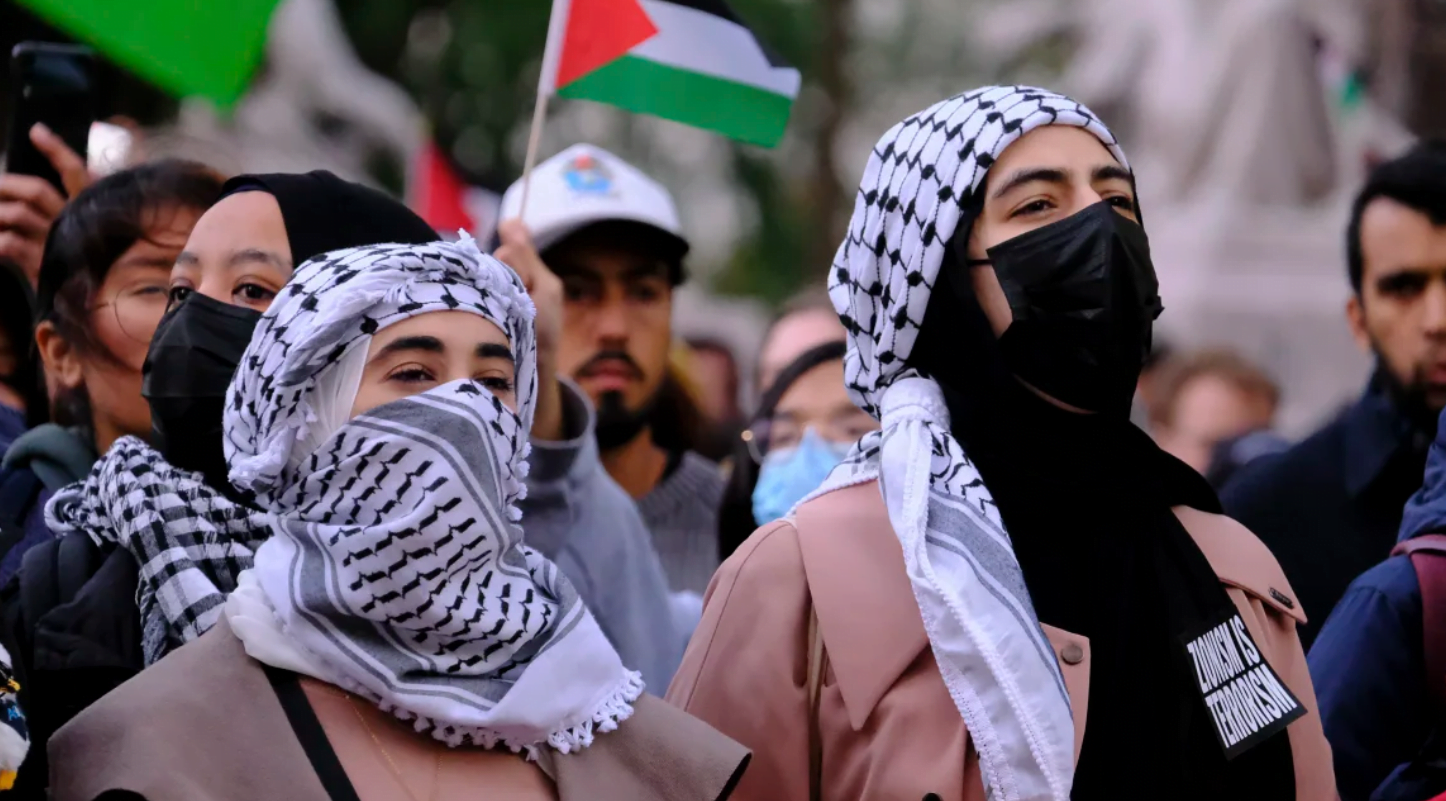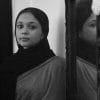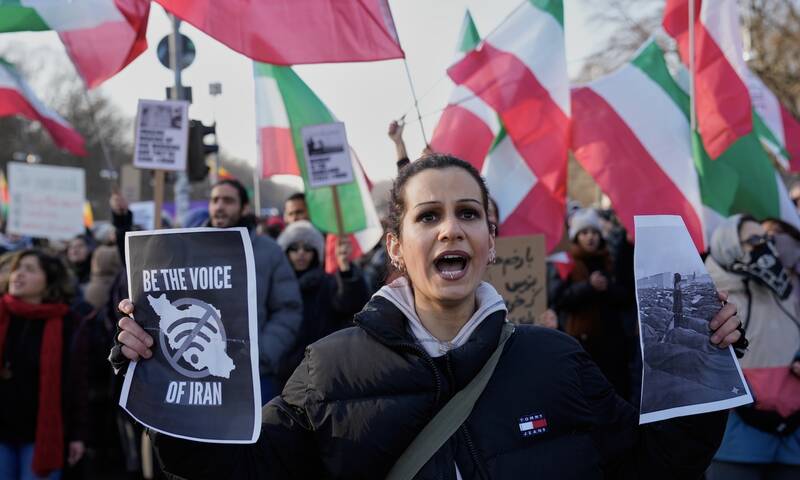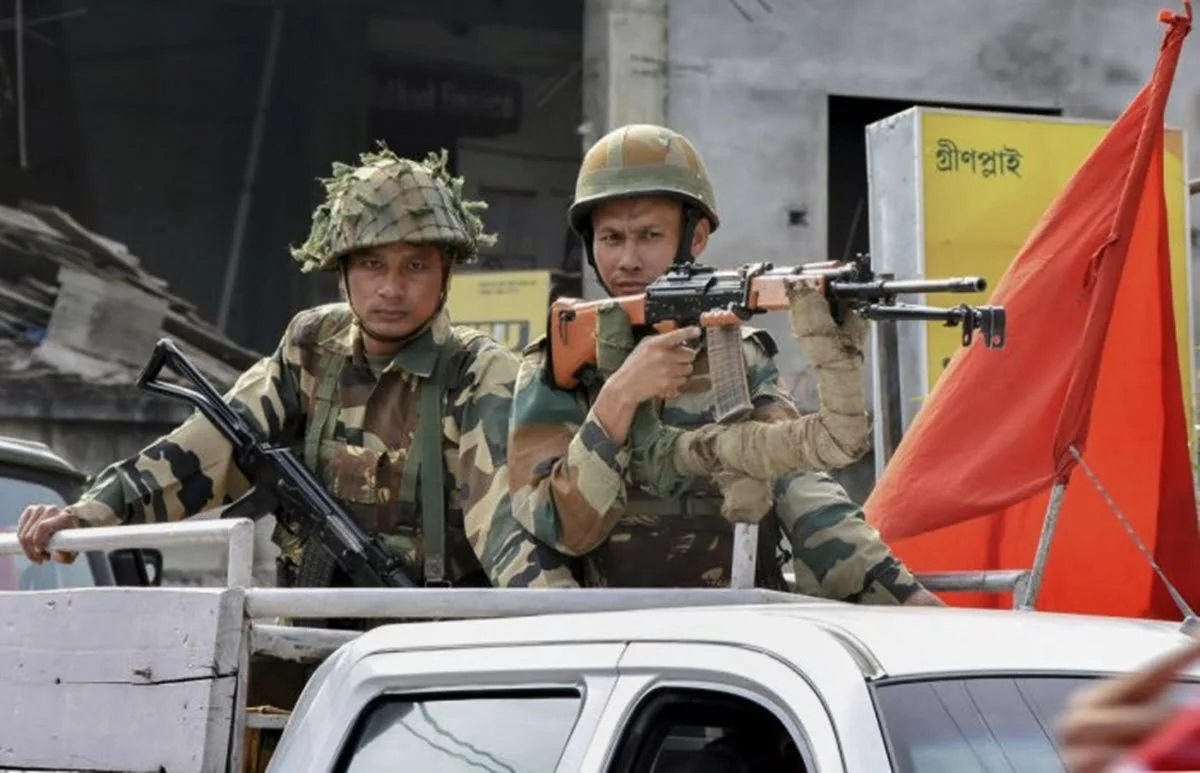From cultural manipulation to negative stereotyping, Hollywood has done its fair share of depicting Muslims and Arabs as backward, barbaric, and brutish. As Hollywood actively propagates this propaganda against Muslims and Arabs, many celebrities associated with it could be found actively backing the genocide of Palestinians now.
Amy Schumer was not the first in this set of ‘celebrities,’ neither will she be the last. From sharing a now-deleted Islamophobic comic, she has been continuously vocal about the mythical Israeli suffering, showing the white supremacist attitude of unapologetically vouching for the oppressors.
Hollywood’s response to the ongoing Palestinian genocide is hugely divided. While the Academy Award winner Susan Sarandon was dropped by the United Talents Agency and Melissa Barrera was removed from the ‘Scream,’ franchise for their pro-Palestinian stance, Piers Morgan and Amy Schumer enjoy absolute impunity.
As Hollywood is generally regarded as a ‘progressive space,’ for their anti-Trump position and the #MeToo movement, why do double standards come into play when a genocide is unfolding in front of us?
Is Hollywood a progressive space?
Hollywood has been hailed as a ‘progressive haven,’ however, the way pro-Palestinian figures are currently hunted for their opinions is a stark example of Hollywood’s partiality and bigotry, when it comes to the Palestinian cause. During Donald Trump’s presidency, there were varying opinions within the Hollywood community regarding him.
Hollywood is not a monolithic entity, and individuals within the industry hold diverse political views. However, many actors, filmmakers, and other figures in the entertainment industry were openly critical of Trump and his policies. Some Hollywood figures used their platforms to speak out against Trump’s immigration policies, climate change stance, and his overall approach to governance. Award shows and events, especially the 89th Academy Awards often became platforms for celebrities to express their political opinions. Celebrities such as Meryl Streep, Robert De Niro, and Alec Baldwin were among them.
During the #MeToo movement of 2017, Hollywood played a significant role, as many individuals within the entertainment industry came forward with their own experiences of harassment and abuse. The movement prompted a broader societal conversation about the prevalence of such issues and the need for change. During awards shows and acceptance speeches, many Hollywood celebrities used their platforms to speak out against sexual misconduct and advocate for a culture of respect and equality. The red carpet at events like the Golden Globes and Oscars became a platform for activists to raise awareness about the movement.
Hollywood was also a crucial player in the Black Lives Matter movement, which has garnered momentum, leading to cultural and systematic changes on a global scale. While celebrities like Viola Davis, Mahershala Ali, Regina King, etc., used various resources for the movement, why do Palestinians and their resistance remain absent in their Instagram feeds? This question is critical to the integrity of these artists and their commitment to various social causes. When there is selective participation, they tend to stand with the oppressor rather than the oppressed.
Many celebrities raised their voices during the Russia and Ukraine war. From videos and posts on social media, many celebrities could be seen expressing their opinion and solidarities.
Zionist propaganda and the Palestinian resistance
The rhetoric of ‘anti-semitism,’ is exercised to control the artists who have called for a ceasefire in Gaza. Mellisa Barrera was ‘guilty,’ for advocating for a halt in hostilities and referencing the views of Raz Segal, an Israeli scholar specialising in Holocaust and genocide studies at Stockton University in New Jersey. Segal has contended that Israel’s present actions represent a “textbook case of genocide.”
While Gal Gadot is revered for her comment, “I stand with Israel you should too,” Mark Ruffalo, the actor, had to issue an apology for using the term “genocide” when referring to Israel’s military actions in Gaza during the May 2021 conflict.
This refers to the practice of ostracising and isolating the artists with a pro-Palestinian stance. Susan Sarandon, famous for her role in Thelma & Louise (1991), was dropped by her talent agency as she made some remarks at the rally supporting Palestine.
“There are a lot of people that are afraid, afraid of being Jewish at this time, and are getting a taste of what it feels like to be a Muslim in this country, so often subjected to violence,” Sarandon was heard saying in the videos.
The prominent artists being penalised for their stand include the Hadid sisters, who are of Palestinian-Dutch descent. Bella Hadid has been vocal of the Palestinian cause for a long time, calling out Instagram for deleting one of her posts. The post featured a picture of her father’s passport, emphasizing the place of birth section that indicated “Palestine.”
Silence and performative activism
The act of siding with Israel is done in two ways. While some chose to remain silent, others chose to be ‘diplomatic,’ and ‘neutral,’ creating almost the same effect. Instead of calling out Israel for killing a whole generation, they chose to stand with ‘peace,’ which is a superficial concept when one party is killing the other. This is a classic example of performative activism, which refers to actions or statements perceived as superficial or insincere, often done to gain social approval or maintain a positive public image. The irony in treating the starvation of Gaza and the shortage of gluten-free food for IDF soldiers as the same is malicious.
The manifestation of performative activism within the context of Palestine takes on a more sinister dimension as it inadvertently contributes to the perpetuation of the ongoing genocide. When influential individuals or entities engage in superficial gestures or maintain a passive stance, they become, in essence, silent spectators to the injustices unfolding. This passive complicity, the act of standing idly by without actively opposing or addressing the systemic issues at play, is, in itself, a form of oppression.
The tokenistic approach of celebrities advocating for peace serves to appease their perceived superior attitudes as saviors, without genuinely immersing themselves in the complexities of the crisis. This strategy allows them to maintain a positive public image and safeguard their financial interests while superficially engaging with global issues. A prime example of this double-edged sword is evident in Kim Kardashian’s call for “Peace in the Middle East.”
Kim Kardashian’s narrative on peace in the Middle East inadvertently reinforces stereotypical views of the region as perennially war-torn, with its inhabitants enduring constant agony and suffering. This oversimplified portrayal overlooks the historical context, where colonialism and imperialism have contributed significantly to the exploitation and conflicts in the Middle East. Celebrities may inadvertently perpetuate harmful stereotypes by advocating for peace without a nuanced understanding of the root causes.
Moreover, the white saviour syndrome is evident in these tokenistic interventions. Celebrities, distanced from the direct impacts of the conflict, use their influence to present themselves as benevolent figures intervening for the greater good. This detachment allows them to engage in performative gestures without truly addressing the complexities and consequences of the genocide, contributing to the superficiality of their involvement.
In doing so, they risk oversimplifying the issues, reinforcing harmful narratives, and diverting attention from the structural problems that underlie the crisis. Authentic engagement with global issues requires a deeper understanding of historical nuances and a commitment to addressing root causes rather than merely perpetuating tokenistic interventions.
The manifestation of performative activism within the context of Palestine takes on a more sinister dimension as it inadvertently contributes to the perpetuation of the ongoing genocide. When influential individuals or entities engage in superficial gestures or maintain a passive stance, they become, in essence, silent spectators to the injustices unfolding. This passive complicity, the act of standing idly by without actively opposing or addressing the systemic issues at play, is, in itself, a form of oppression.
To be a mute spectator in the face of a humanitarian crisis and the perpetration of human rights abuses implies a tacit endorsement of the status quo. The power dynamics at play in the Israel-Palestine conflict are intricate, and the consequences of performative activism or passive engagement can be severe. Without genuine efforts to challenge the structures contributing to the conflict, such as discriminatory policies, displacement, and historical injustices, the cycle of oppression and violence is perpetuated.
True activism involves speaking out against injustice, understanding the root causes of conflicts, and actively working towards solutions that address the fundamental issues. Being a silent bystander not only fails to contribute to positive change but, in effect, aligns with the oppressive forces that perpetuate the suffering in regions like Palestine.
In the context of genocide and systemic injustice, drawing a narrative that addresses the oppression of the Palestinian people in the cultural space is an immediate need.
About the author(s)
Hajara Najeeb is an Independent Researcher working on issues of Minority Rights and Affairs, Gender, and Politics.





